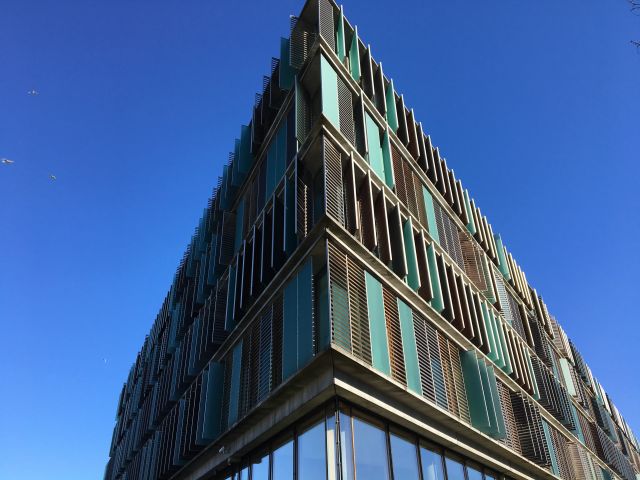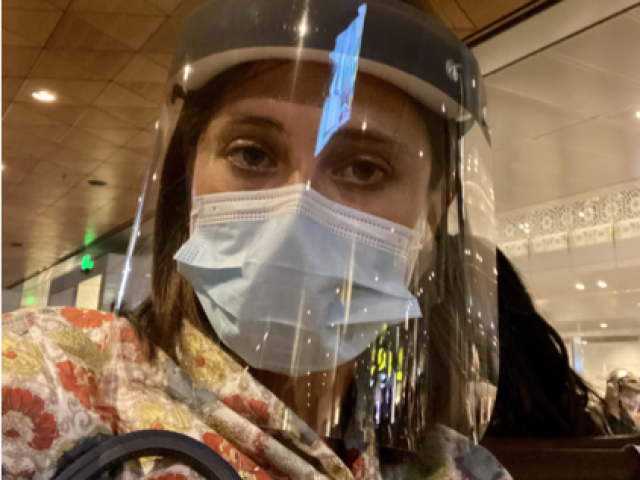Three CBS representatives criticize the decision-making process on appointment of deputy president

(Photo by Anna Holte)
Members of the Academic Council and the General Consultation Committee criticize their exclusion from the decision to appoint a deputy president at CBS. They are worried that the decision and division of tasks will result in a lower priority for research and will lead to centralization.
No involvement in the decision-making process, downgrading of research interests, centralization and an opaque line of command.
These are the main points of the criticism aimed at the decision to appoint a deputy president (Danish: Prorektor) for CBS. The criticism comes from members of the General Consultation Committee (HSU) and the Academic Council, who, overall, do not understand why it has been necessary to split the roles and tasks of the Dean of Research in two.
The new deputy president will take over the day-to-day management of the departments and faculty, including responsibility for recruitment, promotion, development and further education of faculty. Furthermore, the deputy president will represent the President of CBS in external relations.
According to a statement on CBS Share, the aim is “to add extra driving force to Senior Management” and “allow the Dean of Research to take on more strategic tasks”.
In late March, the members of the General Consultation Committee and the Academic Council were informed that CBS would be getting a deputy president. Ole Helmersen, Associate Professor and HSU member, sees the new deputy president’s position as a “significant change of CBS’ governance structure” and explains that he thinks “the division of roles and tasks is problematic from a faculty point of view”.
“I fear that the line of command from faculty to head of department to the top management will change. It will be divided in two, which I think could cause confusion and a risk of conflicts,” he says and continues:
“In the latest job satisfaction survey, faculty scored the level of openness about career opportunities low, and the new structure, where recruitment and promotion are divided between the Dean and the deputy president, may well strengthen the experience that there’s a lack of transparency.”
Kristian Miltersen, Professor and Chair of the Academic Council, explains that there is especially one concern about the new deputy president position and the way the tasks and responsibilities have been divided.
“The Academic Council is worried that when you move the department managements from the Dean of Research to a new deputy president whose role will be to make sure the departments manage their teaching and research tasks, research will be downgraded. And maybe in future, the focus on the educational programs being research based will be insufficient,” he says with reference to CBS’ current matrix structure.
Like Kristian Miltersen, Morten Knudsen, Associate Professor and HSU member, believes that research interests risk taking a back seat under the new deputy president.
“It’s hard not to see this maneuver as centralization. The faculty identify as researchers and lecturers, but when the Dean of Research is demoted to a seat on the sidelines, the voice of the researchers is being weakened in the organization,” he says.
Not only is Morten Knudsen concerned that general research interests at CBS will be overlooked, he is also worried about the thinking behind the structural changes.
“The argument for introducing a deputy president is to strengthen the ‘strategic muscles’ and to ‘ensure more strategic driving force in Senior Management’. However, the idea that top management should be the strategic muscle of CBS is unfortunate. A complex university like CBS cannot be driven like a private company based on the idea of a muscular top management,” he says and continues:
“Today, CBS is a very strong institution precisely because of its strong faculty, its efficient administration, the research environments, the study boards and all the other institutions within CBS that have thorough and specialized knowledge of their areas of work. In this situation it would be wiser to think of top management as having a facilitator role and not as the muscles.”
No involvement
Another point of criticism is the lack of involvement in the discussion of the deputy president’s needs and aspirations.
“The Academic Council was presented with a readymade proposal in which it was decided that CBS should have a deputy president who would manage the departments and be a member of CBS’ Senior Management. That was not up for discussion,” explains Kristian Miltersen.
On April 15, the members of the Academic Council, without the President of CBS, who is also a member of the council, wrote a letter to the Senior Management in which, according to Kristian Miltersen, they protested against the procedure and criticized the exclusion from the process.
“The Academic Council thinks it is against CBS bylaws not to involve the Academic Council in a discussion on whether we should even have a deputy president. It’s also a shame that the Senior Management doesn’t make more use of the Academic Council, as one of our core duties is to legitimize the Senior Management’s decisions and ensure the dialogue with CBS’ employees and students. We really want to be part of that, but it’s hard when we are not involved more and informed better earlier in the process,” he says.
Ole Helmersen emphasizes that the HSU does not have a problem with the President of CBS wanting to have a deputy president. They understand that the Senior Management needs more hands to manage the workload.
“I recognize that they have the managerial authority, but it’s strange that they didn’t want to run the process more openly,” he says.
A different solution
According to Ole Helmersen, CBS has had deputy presidents before, but the big difference between them and this one is that they did not have staff responsibilities. For example, previous deputy presidents have been in charge of drawing up CBS’ internationalization strategy, as well as ensuring quality development in research and teaching.
Ole Helmersen suggests that the new deputy president could, instead, have been responsible for realizing CBS’ new strategy, and Kristian Miltersen also has an idea for how to relieve the Dean of Research of some tasks.
“We didn’t get the chance to discuss other solutions, such as strengthening the Dean of Research’s area with, for example, a vice dean who could add some ‘development power’ to the Research Dean’s office,” he says.
It’s hard not to see this maneuver as centralization
Morten Knudsen
Morten Knudsen had hoped that the Senior Management would have presented CBS representatives with the problem first, instead of the solution, as he thinks better solutions and decisions would have been made.
“If the problem is too many tasks on the Dean of Research’s desk, it would make sense to look at the departments and ask if they could help shoulder the load. That would be in line with Søren Hvidkjær’s ambition to strengthen the departments, and it would be decentralizing,” he says.
Who should it be?
Right now, the Senior Management is finishing up the job advertisement, which will be online in September, and already, Morten Knudsen has a wish list regarding the new candidate.
“It’s hard to ignore that it has to be a woman. There are three men in the Senior Management. And it has to be someone who understands CBS. Understands the complex matrix structure and respects that people in the different environments know what they are doing. That’s important. And, of course, the candidate should be a researcher,” he says.
Usually, the Academic Council has a seat in the hiring committee when new deans or university directors are hired – the level below the president. However, this time, employees and students are represented in the hiring committee through their representatives on the Board of Directors, according to Kristian Miltersen.
“Just as we believe it’s against CBS bylaws to not involve the Academic Council in a discussion on whether CBS should have a deputy president, we believe the same is the case when we are not involved through representation in the hiring committee,” he says and continues:
“We have, of course, had a dialogue with the President of CBS and the rest of the Senior Management about this, and we have been promised a part in drawing up the job description, gaining insight into the applicants and dialogue with the hiring committee – but not direct representation on the committee itself.”





































































































































Comments